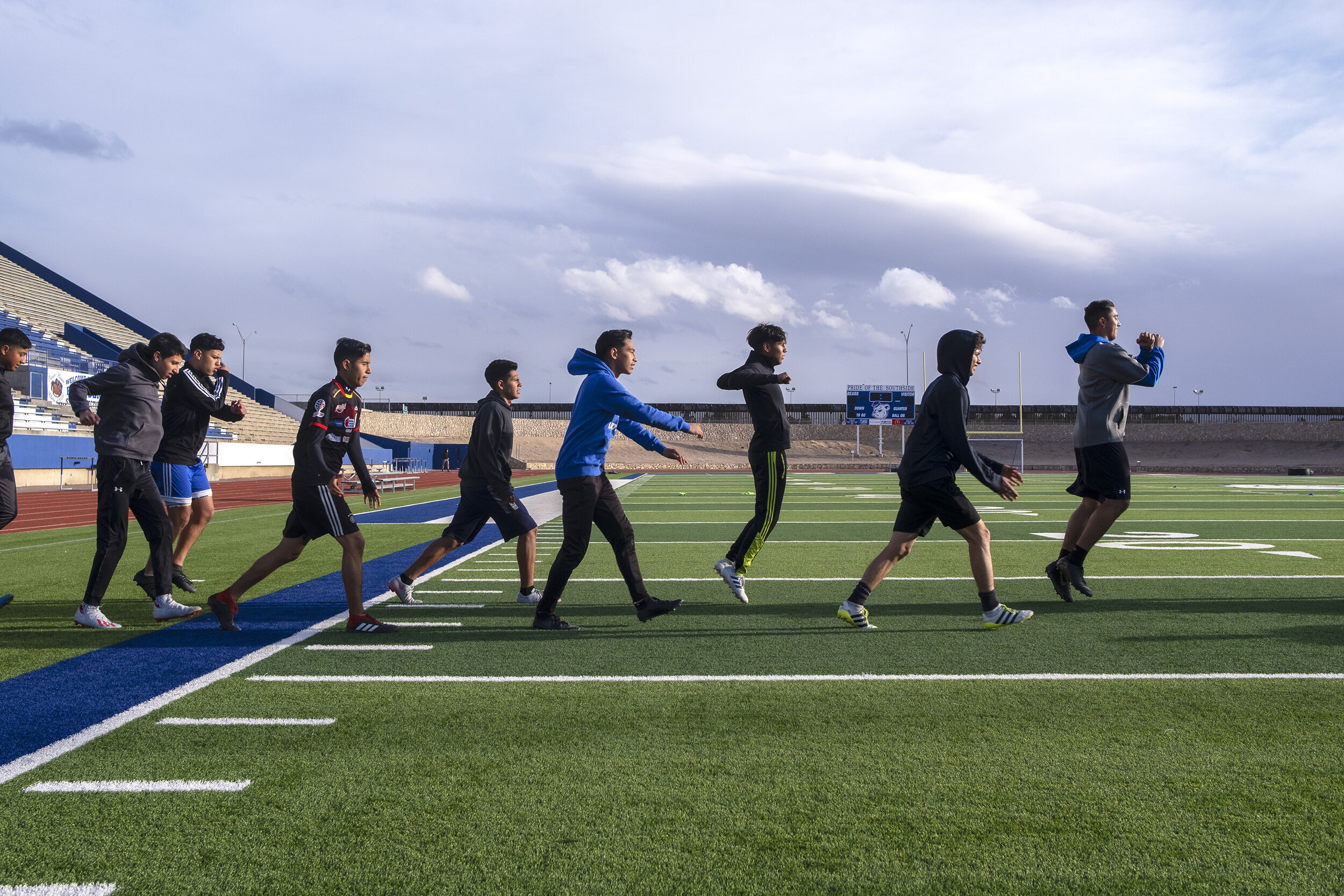Bowie High School is situated directly along the US-Mexico border in El Paso, Texas. Each day, a large percentage of the Bowie High School soccer team wakes up before 5am to make the long and tedious commute from Juárez to El Paso. American citizens whose extended families often straddle the border, their days start early and end late as their commitment to being student-athletes regularly keeps them on the field until 10 o’clock at night.
The scoreboard at Bowie High School’s Baty-Simmang Memorial Stadium situated directly in front of the US-Mexico border wall in El Paso, Texas.
Bowie High School is in a neighborhood of El Paso called El Segundo Barrio which is part of the city’s South Side. While the entire city of El Paso is impossible to separate from its cultural and familial ties to Mexico and Juárez, the South Side is especially connected to that heritage. Like so many majority black and Hispanic neighborhoods in the US cities, the median income in El Segundo Barrio is among the lowest of El Paso’s neighborhoods. This means that Bowie has to stretch its limited resources for students whose aspirations can include going to college in the US.
The Bowie High School Varsity soccer team warming up for practice the day before their game against El Paso High School.
Yet while many Americans see the border as a highly politicized part of the country,
for these high school students, it’s seen more as an annoyance that complicates and extends their daily commute.
From left, Christian Osorio, Eduardo Moreno, and Carlos Ortega Snow on their morning walk from The Bridge of the Americas border crossing to Bowie. Snow delayed first period at school which gave them time to have a quick snowball fight at the Chamizal National Memorial across the street from Bowie.
Bowie Varsity Soccer Coach Arnold McElroy watches his players as they practice the night before their game against El Paso High School.
Coach McKelroy’s mantras “Don’t waste time!” and “Do it right!” were constantly in players’ ears as he reminded them of the lead that was squandered in a loss to El Paso High last year.
At the same time, Bowie’s teachers and administration are acutely aware of the challenges that many of their students face and have become experts in navigating the different programs and opportunities available to their students.
While many student-athletes cross the border each day, the same opportunity does not always exist for their parents who are not all American citizens. Attendance at most sporting events is low as an inability to cross the border or the financial need to work long hours keeps parents at home or at work during games.
The team huddles with team captain Kevin Ibarra (10) to crack jokes and game plan during half time.
Josh Escarcega (9), Israel Reyes (20), Eduardo Moreno (11), and the rest of the team clap for the fans who braved cold weather to watch their win.
As I was driving to El Paso, I found out that National Geographic had recently published a piece about Bowie High School’s cheerleading team. The photographer Sara Naomi Lewkowicz and reporter Nina Strochlic did an incredible job. I don’t feel that there’s anything I could add to their incredibly thorough reporting work so I’ll have to move on from this story. I’m still glad I made the trip and hope to continue similar reporting work along the border in the near future.










